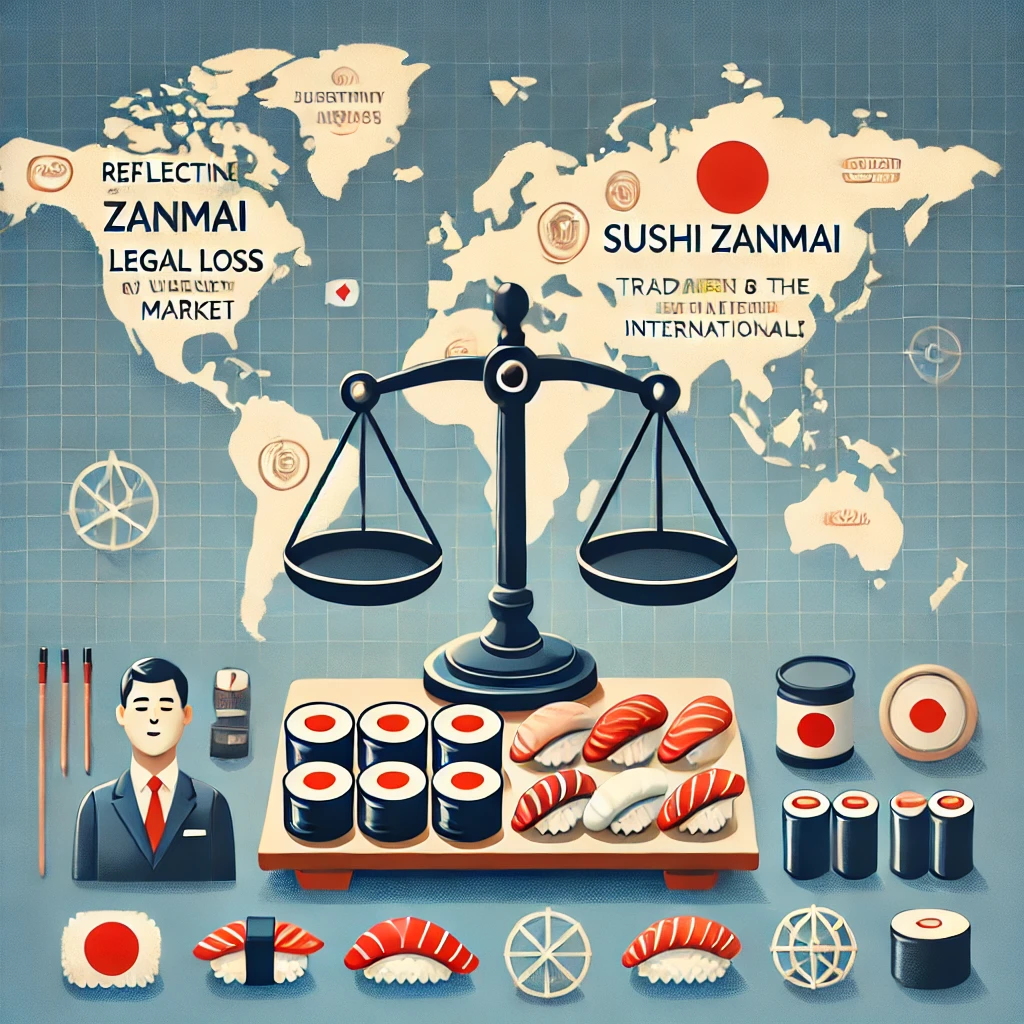Introduction
Recently, Kiyomura, the company behind the sushi chain “Sushi Zanmai,” lost an appeal against Daishoji Japan, which operates under the same name “Sushi Zanmai” in markets like Malaysia. In the lawsuit, Kiyomura sought to halt the use of the name in those regions. This ruling is significant for understanding the relationship between trademarks and international brand value. It raises questions about how popular Japanese brands should be protected in the global market, and we will delve into the key points and background of this decision.
Summary of the Ruling
The Intellectual Property High Court noted that the use of the name “Sushi Zanmai” on Daishoji Japan’s website posed a low risk of confusing Japanese consumers with advertisements for “Sushi Zanmai.” Therefore, Kiyomura’s claims were dismissed. This overturned the initial ruling, which had suggested that such use might cause confusion.
Challenges of International Trademarks
This ruling highlights the difficulty of protecting trademarks internationally. Particularly, the challenge lies in how much a popular Japanese brand can prevent the use of similar names in other countries. While “Sushi Zanmai” enjoys high recognition within Japan, the brand’s level of recognition abroad was a crucial factor in the court’s decision.
Impact of the Internet
It is interesting to note that the court pointed out that the website was “not aimed at advertising to Japanese consumers.” In today’s world, where the internet extends across borders, this brings to light a new issue: how far the online use of a brand name should be subject to trademark protection. Managing trademarks online is becoming increasingly essential to strengthen brand protection.
Future Outlook and Brand Strategy
In light of this defeat, companies like Kiyomura, with high brand value domestically, may need to reconsider their strategies for international expansion and brand protection. As similar cases may arise more frequently, companies will need not only to devise their own methods to safeguard trademarks but also to enhance international trademark registration and collaborative frameworks.
Conclusion
This ruling revisits the question of how trademarks should be protected and expanded in the international market. Particularly in industries like the food and beverage sector, where brand names are essential assets, it will be crucial to take strategic measures, learning from such cases as a reference for future challenges.
